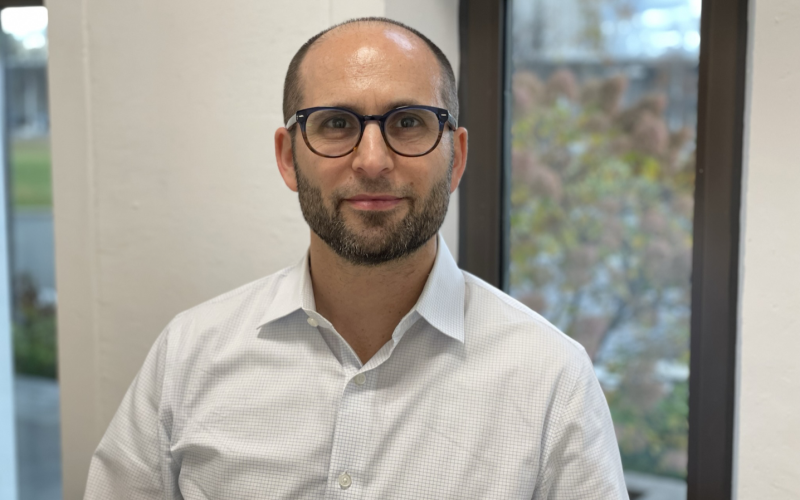UAlbany School of Education Professor Wins Carnegie Fellowship to Study Political Polarization

By Bethany Bump
ALBANY, N.Y. (May 7, 2024) — Brett Levy, an associate professor in the University at Albany’s School of Education, has been selected to receive a 2024 Andrew Carnegie Fellowship from the Carnegie Corporation of New York to study strategies to reduce political polarization in the U.S.
Levy is one of 28 scholars nationwide selected for the program out of more than 360 nominations. Each winner will receive up to $200,000 for research that seeks to understand how and why our society has become so polarized and how we can strengthen the forces of cohesion to fortify our democracy.
A former middle school history, English and social studies teacher, Levy joined the School of Education’s Department of Educational Theory and Practice in 2014 and conducts research exploring how educational programs can support civic engagement among youth.
Through the fellowship program, he plans to expand on research that has identified strategies for reducing political polarization among young people.
Since 2021, Levy has conducted studies through the Youth Civil Connections Project (YCCP) examining how students from different schools and political environments (right-leaning and left leaning) discuss political issues with each other.
By using Zoom and Flipgrid, a discussion board that includes video posts, students from three schools in two politically and demographically distinct states shared their perspectives on controversial issues after studying them in their classrooms. Afterward, students reported more awareness of their own political bubbles, stronger motivation to cross political boundaries, and greater confidence in their ability to engage in challenging political discussions.
Levy hopes to expand on the work of the YCCP during his two-year Carnegie fellowship. He plans to work with nine educators from three politically distinct states to co-design lessons and facilitate discussion among students enrolled in high school civics and government courses.
The main period of data collection will occur from September through November, with discussions planned around the 2024 election. The first phase of instruction will involve building relationships among students. Then in October, students will examine and discuss issues related to the election, including the pros and cons of each candidate on various issues, as well as the challenges of negotiating misinformation via social media. After the election, students will analyze election results and then collaborate with students from different schools to design brief presentations about what they learned through their discussions.
Using quantitative and qualitative methods, Levy will study how these experiences shape students’ political open-mindedness and engagement during an election year.
“Providing more students with opportunities to discuss controversial issues with diverse groups of peers could generate vital learning across political boundaries and reduce political polarization among the younger generation,” Levy said.
The Andrew Carnegie Fellows Program was established in 2015 to provide philanthropic support to extraordinary scholars and writers for research in the humanities and social sciences. During its first eight years, nearly 250 scholars received fellowships of $200,000 to explore a range of issues. After a one-year pause in 2022, the program resumed with a focus on supporting research examining political polarization.
Under the direction of Dame Louise Richardson, the Carnegie Corporation will commit up to $6 million annually to the program for at least the next three years.
“The foundation’s support of these fascinating projects is a considered effort to mine scholarship for insights into the underlying causes of the political polarization that is damaging our democracy,” said Richardson. “We also hope to gain insights into the means by which collectively we can mitigate the negative effects of this polarization on our society.”




